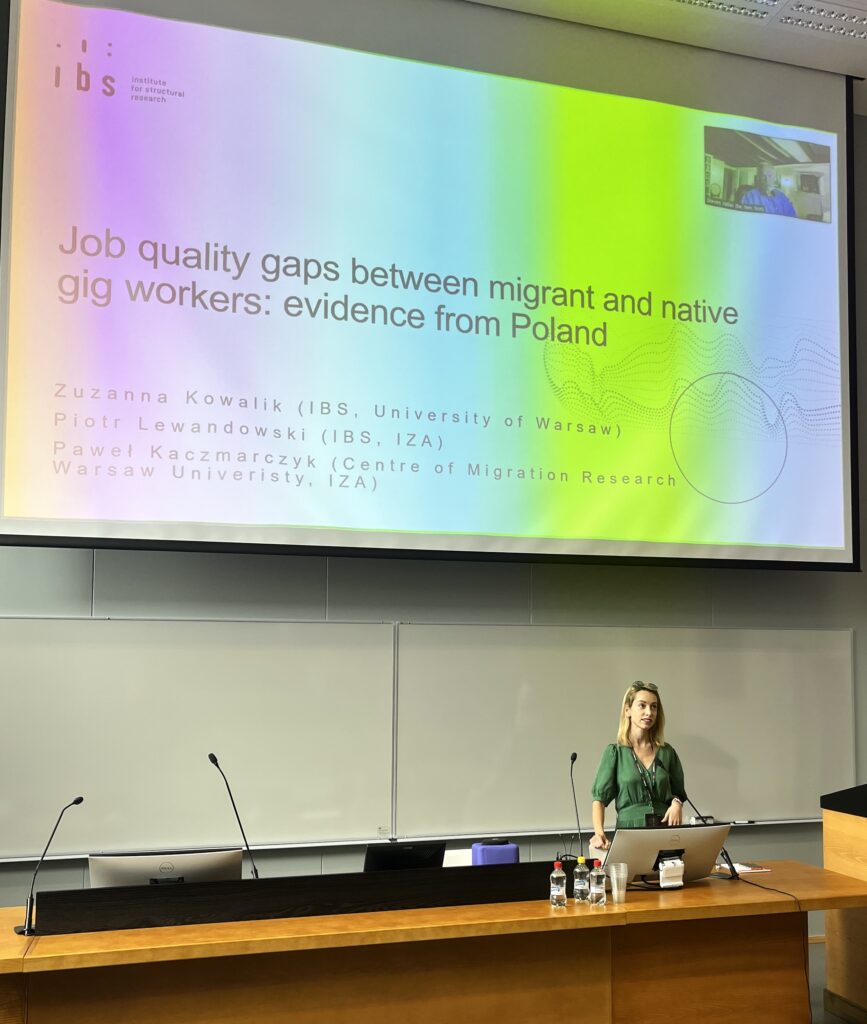The WORK2023 conference in Turku, Finland, centred around the theme “Digital Capitalism: Peril and Possibilities” and reflected on the transformative impact of technology and digital capitalism on contemporary societal changes and the realm of work. The conference spotlighted the vital roles that technologies and digital capitalism have played as catalysts for development and potential sources of inequality.
Zuzanna Kowalik from the Institute for Structural Research delivered a presentation titled “Job quality differences between migrant and native platform workers: evidence from Poland.” This study looked at an important issue in today’s labour landscape – platform work- rapidly gaining ground and could significantly impact traditional employment models and labour relations.

The researcher’s paper aptly aligned with the WORK2023 conference’s overarching theme by shedding light on the intricate relationship between technology, labour, and inequality. Undeniably, the rise of digital capitalism has facilitated the emergence of platform-mediated work, offering opportunities and challenges. The study provided empirical evidence from Poland, a context ripe for investigation due to its evolving labour market and increasing migrant workforce. By analysing job quality disparities between migrant and native platform workers, the research explored how technology-driven work platforms can either contribute to levelling the playing field or exacerbate existing inequalities.

